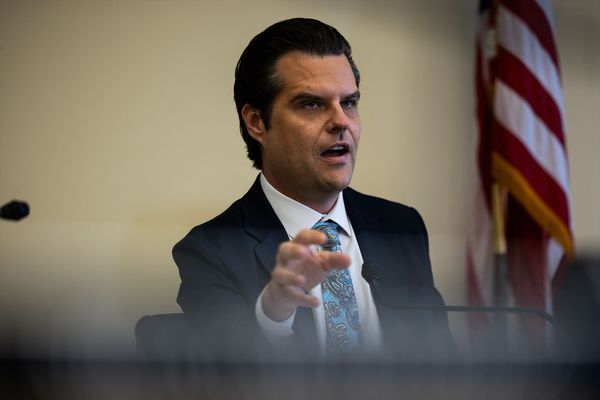
It’s a big week for elections, in a big year for democracy. From Thursday to Sunday, voters will head to the polls in the United Kingdom, Iran and France.
We’ve just entered the mid-point of what’s been called the biggest election year in history. Crikey has your guide to the ballots to come.
United Kingdom
Since the 2016 Brexit vote, Britain has had five Conservative prime ministers: David Cameron (who resigned shortly after losing the referendum), Theresa May, Boris Johnson, Liz Truss and Rishi Sunak.
Pollsters predict Sunak might be the final one in that particular Tory streak. According to The Telegraph, Labour will likely win the largest majority of any single party since 1832. According to a poll released overnight, Keir Starmer’s party could win 431 seats in total, with a majority of 212, while Tories were forecast to lose nearly three-quarters of the seats won in 2019, falling from 365 to 102.
Polls will open at 7am on Thursday — that’s 4pm Australian Eastern Standard Time. By Friday morning in Australia, between 7am and 8am, we should have an indication of how the votes landed. Then, as Saturday morning approaches in Australia, more complete results will be available, and we’ll likely know who won by breakfast time on Saturday.
Iran
Iranians will head to the polls for a run-off presidential election after a previous round of voting last month failed to produce a winner.
Masoud Pezeshkian, a reformist candidate and former health minister, is facing off against ultra-hard-liner and former nuclear negotiator Saeed Jalili. In the previous vote, on June 28, Pezeshkian received about 44.3%, and Jalili about 40.3%.
Neither got enough to clear the 50% bar to avoid a runoff. Turnout was at a historic low, with about 40% of voters casting ballots.
According to The New York Times, Pezeshkian “has said he would engage with the West in nuclear negotiations to lift the tough economic sanctions that are plaguing Iran’s economy”, while his opponent “has a much tougher position on negotiations and has said in debates that he plans to defeat sanctions and strengthen economic ties with other countries”.
But as the article notes, Iran’s supreme leader Ayatollah Ali Khamenei has the final word in deciding major state policies, and regardless of who wins the presidency, sanctions negotiations with the US would continue.
France
In France, a second round of general elections will be held on Sunday, and the far-right National Rally party is in the lead. In last Sunday’s first round, Marine Le Pen and Jordan Bardella’s party received more than 33% of the vote, and National Rally has already won dozens of seats outright, the BBC reports. It will need at least 289 of the lower house’s 577 seats to claim an absolute majority. The leftist New Popular Front bloc came in second with 28%, while the centrist bloc Ensemble (Together) gained 20%.
“There’s one bloc in a position to win an absolute majority, and that’s the far right,” Prime Minister Gabriel Attal told French radio, urging voters to use their ballots to block National Rally, according to the BBC.
Bardella, 28, who will become France’s youngest prime minister ever if National Rally wins, denounced as an “unholy alliance” the attempts by candidates from other parties to strategically drop out of the race to not split the anti-far right vote.
The first round of voting led to an unusual number of three-way contests in round two — more than 300, compared with just a handful last time there was an election. By now, so many candidates have pulled out that fewer than 100 districts will have three-way contests.
“The French electoral system usually does not produce such a complicated picture — but [President Emmanuel Macron’s] shock decision to dissolve Parliament for a snap vote after losing the EU election to the far right last month has thrown the country’s politics into chaos,” Politico reports.
What other elections have already happened this year?
There have already been dozens of elections, including in Bangladesh, Finland, Pakistan, Indonesia, Russia, Portugal, India and the European Union.
According to The New Yorker, “2024 will set a record for the greatest number of people living in countries that are holding nationwide elections: more than four billion, or just over half of humanity.”
Who else will be voting this year?
There will be parliamentary elections in countries such as Syria, Azerbaijan, Austria, Lithuania and Mauritius. Many others are voting for president, including Algeria, Romania, Tunisia, Moldova and Somaliland (a breakaway region of Somalia).
South Sudan is planning its first-ever general elections after independence was achieved in 2011. The election was initially scheduled for 2015, but instability and a six-year civil war delayed the vote. The Sudan Tribune reported this week that leaders were deciding whether the election will finally happen in December.
And then there’s the United States — arguably the most-watched foreign election this year. Americans will vote on November 5 regarding whether Democrat Joe Biden should stay president, or whether Republican Donald Trump will be returned to the White House.
What about Australia?
Prime Minister Anthony Albanese must call for an election to be held by September 27 next year, and according to Treasurer Jim Chalmers, the government is indeed eyeing a 2025 vote. Despite Opposition Leader Peter Dutton speculating Albanese could call an election this year, Chalmers clarified on Wednesday morning, according to The Australian: “I’m working towards an election next year. My understanding, my intention is that we go on the usual time frame. That’s certainly how I’m operating.”
The Sydney Morning Herald writes in a story today that some “Labor MPs privately believe an election later this year remains a chance, but is not the preferred option”.







